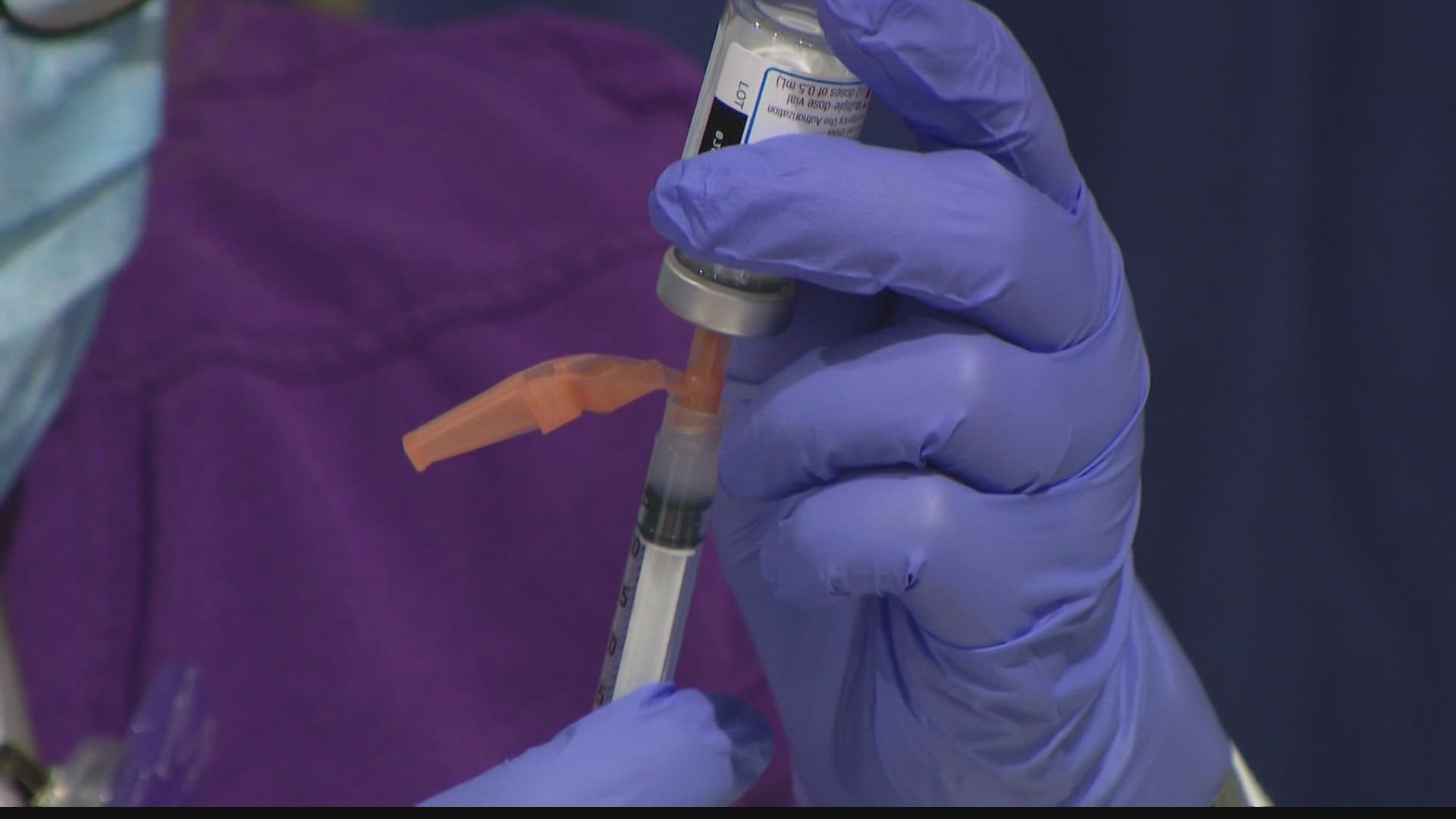INDIANAPOLIS — Pfizer CEO Albert Bourla said the company plans to apply in just days for emergency use authorization of its COVID-19 vaccine for children ages 5-11.
Right now, the Pfizer vaccine is only approved for kids 12 and older. The American Academy of Pediatrics reports that children make up more than a quarter of all COVID-19 cases reported across the country.
Pfizer said pediatric trials showed that its COVID-19 vaccine is safe and effective for children ages 5-11. The emergency use authorization process with the Food and Drug Administration could begin this week. Shots could start going in the arms of younger children by the end of October.
"This is definitely a game-changer, not only in the sense of a pandemic, but if this vaccine is as effective in children as we've seen in adults, then this will definitely help us alleviate that from the challenges that we're experiencing, right - not only for schools and for public health, but for moms and dads as well,” said Thomas Duszynski, director of epidemiology education at the Fairbanks School of Public Health at IUPUI.
A vaccine for children ages 5-11 would cover most elementary school students. Vaccinated students relieve some of the hassle and burden of contact tracing for schools. Students who are vaccinated and show no symptoms can avoid the quarantines that have disrupted so many classrooms in the past couple months.
Pfizer said this dose for younger children is one-third the size of that given to people 12 and older.
"So, the idea behind any vaccine, and we do this with adults as well, is what's the minimum amount of vaccine you can give somebody to produce the desired effect, right - to produce enough antibodies to protect you, right?” said Duszynski. “We don't ever want to give more than what's absolutely necessary. So, they've determined what this threshold is."
RELATED: No, the Pfizer COVID-19 vaccine dosage is not the same for kids ages 5 to 11 as it is for adults
Vaccinating another large segment of the population also raises the overall vaccination percentage.
"We know that not everybody's going to get vaccinated,” said Duszynski. “We certainly wish more people would get vaccinated, because we could have avoided a lot of the surges in hospitalizations that we've seen over the past couple of months now, and unfortunately, then the mortality that we've seen associated with that."
Children ages 5-11 would receive two doses of the Pfizer vaccine, 21 days apart.
Pfizer reported that younger children in vaccine trials had comparable antibody responses and side effects as people ages 16-25. Pfizer is the only company with a vaccine ready for approval for children under 12, and the only vaccine already approved for children 12-17.

